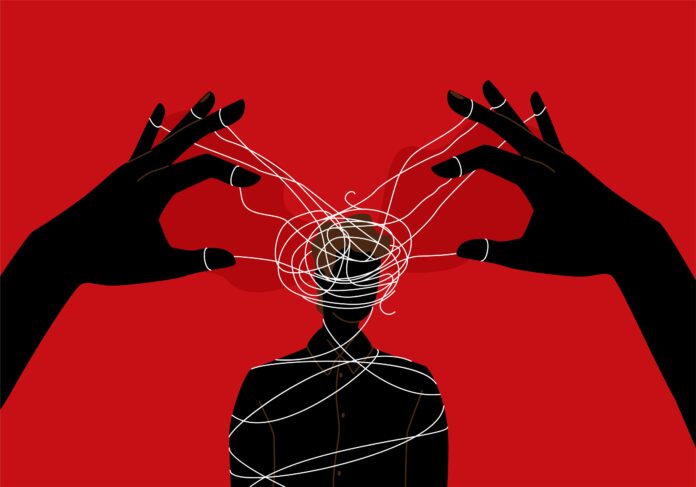
Narcissism, within the realm of relationships, is often characterized by a pervasive pattern of grandiosity, a need for admiration, and a lack of empathy.
The prevalence of narcissistic behavior in society is not negligible, with influences stretching from personal relationships to broader social interactions.
This blog post aims to dissect the patterns and pitfalls of narcissistic behavior in relationships, providing a comprehensive look into how narcissists operate, the stages of their relationships, and the impact on their partners, all while offering insights into navigating these turbulent waters.
Understanding Narcissistic Behavior

Narcissistic Personality Disorder (NPD) is marked by an inflated sense of self-importance, a deep need for excessive attention and admiration, troubled relationships, and a lack of empathy for others.
Narcissists perceive themselves as superior, expecting special treatment and to be placed on a pedestal.
The spectrum of narcissistic traits varies widely, from benign self-focus to the more severe, exploitative behaviors that impair interpersonal relationships. Understanding these traits is crucial for recognizing narcissistic patterns and protecting oneself from potential harm.
Idealization Phase
The initial stage of a relationship with a narcissist can feel intoxicating due to the idealization phase.
Narcissists often shower their new partners with praise, affection, and promises of a perfect future together, making them feel uniquely special.
This grandiose portrayal is not about fulfilling the partner’s needs but rather serving the narcissist’s ego and desire for admiration.
Red flags during this phase include excessive flattery, premature commitments, and a disregard for the partner’s boundaries, signaling the potential for future emotional turmoil.
Devaluation Phase
Following the idealization phase, the relationship invariably shifts to devaluation, a hallmark of narcissism in relationships.
The once-adored partner now faces criticism, contempt, and various forms of emotional manipulation. This shift is jarring and disorienting, leading to significant emotional distress.
Signs of devaluation include demeaning remarks, public humiliation, and a withdrawal of affection, as the narcissist seeks to maintain control and superiority over the relationship. The cycle of devaluation not only erodes the foundation of trust but also deeply impacts the partner’s self-esteem and mental health.
Understanding this phase is essential for recognizing the deteriorating dynamics of the partnership and taking steps towards self-preservation and healing.
Gaslighting and Manipulation

Gaslighting, a form of psychological manipulation where the perpetrator sows seeds of doubt in the victim, making them question their own memory, perception, or sanity, is a hallmark of narcissistic relationships.
Narcissists deploy manipulative tactics, such as denying hurtful statements or actions, projecting their own faults onto their partner, and twisting facts to blame the victim for the relationship’s issues.
These tactics can devastate the partner’s self-esteem and perception of reality, making it challenging to trust their own experiences and feelings.
Lack of Empathy
At the core of narcissistic behavior is a profound lack of empathy, an inability or unwillingness to recognize and share the feelings of others.
This deficit manifests in the narcissist’s insensitivity to their partner’s needs, feelings, and well-being, treating them as mere extensions of themselves rather than separate individuals with their own rights and emotions.
Examples include indifference to the partner’s pain, ridicule of their emotions, and an overall lack of support and understanding, which erodes the foundation of trust and mutual respect in the relationship.
Entitlement and Control
Narcissists operate with a pronounced sense of entitlement and an insatiable need for control, viewing their partners as objects to be used for their own gratification.
This entitlement manifests in demands for constant attention, admiration, and submission to their will, often at the expense of the partner’s needs and desires.
Control is exercised through tactics like financial domination, social isolation, and coercive persuasion, stripping the partner of their autonomy, independence, and self-worth.
Cycle of Idealization and Devaluation
The relationship with a narcissist is characterized by a perpetual cycle of idealization and devaluation, a rollercoaster of extreme highs and devastating lows.
This cycle is driven by the narcissist’s need for admiration and fear of intimacy and vulnerability.
Understanding the psychological underpinnings of this cycle is crucial for recognizing the pattern and seeking ways to break free from its destructive orbit, enabling one to reclaim their sense of self and move towards healthier relational dynamics.
Isolation and Dependency

Narcissists often isolate their partners from their support networks, gradually eroding their sense of independence and self-efficacy.
This isolation fosters an unhealthy dependency, with the partner becoming increasingly reliant on the narcissist for emotional support, validation, and even their sense of reality.
Barriers to leaving the relationship include fear of loneliness, financial dependency, and a diminished sense of self-worth, making it difficult to escape the toxic environment and seek help.
Emotional Abuse
Emotional abuse is prevalent in relationships with narcissists, characterized by a pattern of behavior that undermines the partner’s self-esteem and mental well-being.
This can include verbal abuse, manipulation, intimidation, and constant criticism, leaving long-term scars on the partner’s psyche.
Recognizing emotional abuse is the first step towards seeking help and support, whether through friends, family, or professional services, to begin the healing process.
Self-Care and Recovery
Recovering from a relationship with a narcissist demands a focus on self-care and boundary-setting.
Tips for self-care include engaging in activities that boost self-esteem, seeking therapy to process the trauma, and reconnecting with supportive friends and family.
Setting firm boundaries is crucial for protecting oneself from further harm and starting the journey towards healing and rebuilding self-esteem, laying the groundwork for healthier future relationships.
Conclusion

Navigating a relationship with a narcissist is fraught with patterns and pitfalls that can deeply impact one’s emotional well-being and sense of self.
Recognizing the signs of narcissistic behavior, understanding the phases of idealization and devaluation, and being aware of the tactics used to manipulate and control are essential steps in protecting oneself from harm.
If you find yourself in such a relationship, seek support, prioritize self-care, and remember that healing is possible, paving the way for healthier and more fulfilling relationships in the future.








